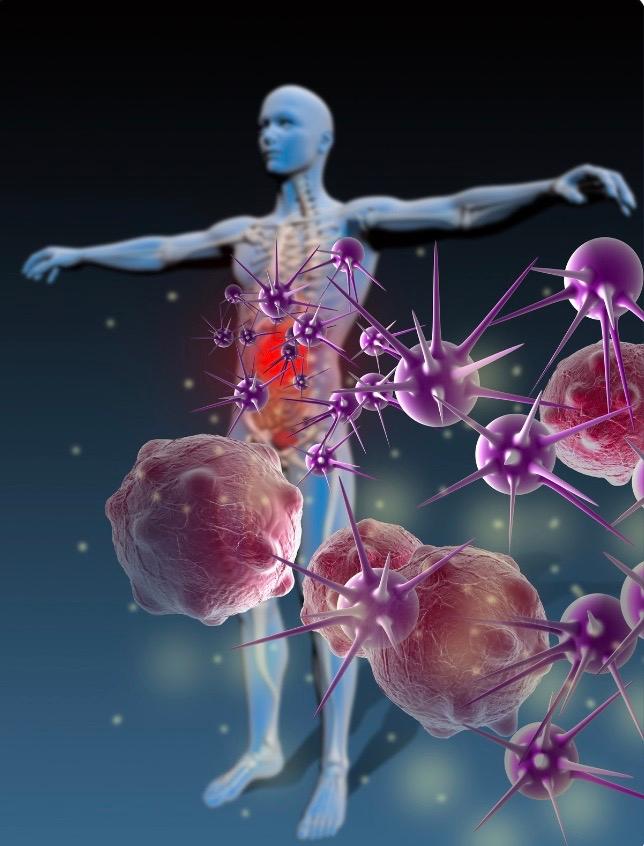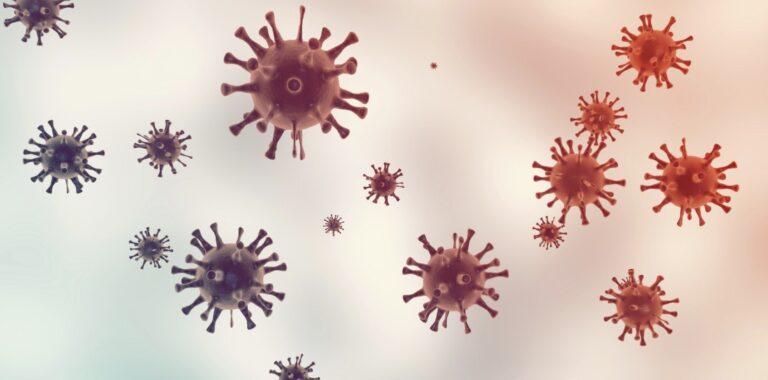
Do you ever wonder why some people seem to get sick more often than others? From the common cold to rarer diseases, understanding the most common diseases and possible predisposing factors can help us all stay healthier and prevent future diseases. This article will provide an overview of frequently seen illnesses and discuss a few possible contributing elements to the development of certain conditions. Read on for more information – knowledge is power!
Heart disease
Heart disease is a general term for various conditions affecting the heart. The most common type of heart disease is coronary artery disease (CAD). It is the most common cause of heart attack and it was the single biggest killer of both men and women worldwide in 2019, according to the British Heart Foundation.
CAD occurs when the arteries that supply blood to the heart become blocked or narrowed. This can happen due to a build-up of plaque (a fatty substance) on the artery walls. Untreated CAD can lead to chest pain, heart failure and arrhythmias. Heart disease is more common in people with obesity and it is also linked to poor diet, lack of physical activity, high cholesterol and high blood pressure (hypertension). However, there are things that you can do to reduce your risk of developing heart disease, such as eating a healthy diet and taking regular exercise.
Alzheimer’s Disease
Alzheimer’s disease is a type of dementia that affects a person’s memory, thinking and behaviour. The disease usually progresses slowly and gets worse over time. Early symptoms of Alzheimer’s disease may include having difficulty remembering recent events or conversations, losing interest in hobbies or activities and experiencing changes in mood or personality. As the disease progresses, people with Alzheimer’s may have trouble recognising familiar people or places, difficulty speaking or writing and problems with basic daily activities such as eating or dressing. Alzheimer’s disease is the most common cause of dementia, there is currently no cure. However, treatments are available that can help to manage the symptoms of the disease and slow its progression.
Sore throat
A sore throat is a common condition that can be caused by a variety of things, from viral infections to allergies. The throat is the tube that carries food and air to the stomach and lungs, it is lined with mucous membranes. These membranes can become irritated and inflamed, causing a feeling of pain or discomfort. Sore throats are often accompanied by other symptoms, such as a runny nose, coughing or sneezing. In some cases, a sore throat may be a sign of a more serious condition, such as tonsillitis or strep throat.
Sore throats are relatively common, most people will experience one at some point in their lives. While they are usually not serious, sore throats can be quite painful and disruptive. There are many home remedies that can help to ease the discomfort of a sore throat, such as drinking warm liquids or gargling with salt water. If the sore throat persists for more than a few days or is accompanied by fever or difficulty swallowing, it is important to see a doctor to rule out any serious conditions.
Meningitis
Meningitis is an inflammation of the meninges, the thin membranes that protect the brain and spinal cord. It can be caused by a viral or bacterial infection, it can sometimes be fatal. Symptoms of meningitis include headache, stiff neck, fever and vomiting. Treatment typically includes antibiotics or antiviral drugs. In some cases, hospitalisation may be necessary. Early diagnosis and treatment are essential for a good outcome. Anyone who suspects they may have meningitis should seek medical attention from a healthcare professional immediately.
Prostate cancer
Prostate cancer is a type of cancer that develops in the prostate, a small gland in the male reproductive system. The prostate is located just below the bladder and surrounds the urethra, the tube through which urine and semen pass. Prostate cancer usually develops slowly, most men with the disease will never experience any symptoms. However, some men may develop urinary problems, such as difficulty urinating or a decreased flow of urine. In rare cases, prostate cancer can spread to other parts of the body and cause more severe symptoms.
In males in the UK, prostate cancer is the most common cancer, with around 52,300 new cases every year (2016-2018) according to Cancer Research UK. It is most often diagnosed in men over the age of 50. While there is no sure way to prevent prostate cancer, maintaining a healthy lifestyle and getting regular screenings can help to reduce your risk.
Cervical cancer
In the UK cervical cancer is the 14th most common cancer in females in their early 30’s, it is one of the most preventable types of cancer.
Cervical cancer is a type of cancer that develops in the cervix, the lower part of the uterus that connects to the vagina. It is usually caused by the human papillomavirus (HPV), a sexually transmitted infection. The HPV virus is very common, most people who are infected do not develop cervical cancer. However, some strains of HPV can cause abnormal changes in the cells of the cervix, which can lead to cancer over time.
Cervical cancer is usually diagnosed with a Pap smear involving gentle removal of cells from the cervix which can be checked for cell changes. The NHS cervical screening programme invites women from age 25 to 64 for cervical screening. Depending on your location and your age, you get an invite every 3 to 5 years. You need to be registered with a GP to get your screening invitations.
Hepatitis
Hepatitis is a disease that affects the liver. It can be caused by a virus, such as hepatitis A, hepatitis B or hepatitis C virus, or other factors, such as alcohol abuse or exposure to certain chemicals can cause it. Hepatitis can lead to liver damage, inflammation and scarring. It can also cause death. There are many different types of hepatitis and symptoms can vary depending on the type. Some people with hepatitis may have no symptoms at all, while others may experience fatigue, nausea, muscle aches, abdominal pain, dark urine, jaundice and fever.
Breast cancer
Breast cancer is a type of cancer that develops from breast tissue. It usually starts off as a small, non-cancerous lump known as a tumor. However, over time, it can grow and spread to other parts of the body. While breast cancer can occur in both men and women, it is much more common in women. In fact, it is the most common type of cancer in the UK. About 1 in 8 women are diagnosed with breast cancer during their lifetime.
There are several risk factors for developing breast cancer, including age, family history, personal history of breast cancer, obesity and exposure to certain hormones. There are also several different types of treatment for breast cancer, including surgery, radiation therapy, hormone therapy and chemotherapy.
Urinary tract infections
A urinary tract infection (UTI) is a bacterial infection that can occur in any part of the urinary system, including the kidneys, ureters, bladder or urethra. Most UTIs are caused by bacteria that enter the urinary system through the urethra and travel to the bladder. The bacteria then multiply and cause an infection.
UTIs are more common in women than men because their urethras are shorter and closer to the anus, which allows bacteria to more easily enter the urinary system. Symptoms of a UTI may include a strong urge to urinate, pain or burning during urination, cloudy or bloody urine and pelvic pain.
UTIs can usually be treated with antibiotics. However, some UTIs may resolve on their own without treatment. In most cases, symptoms will improve within a few days of starting treatment. However, some people may experience recurrent UTIs.
High cholesterol
High cholesterol is a condition in which there is an excess of cholesterol in the blood. While cholesterol is necessary for the body to function properly, too much cholesterol can lead to serious health problems. High cholesterol is often caused by lifestyle factors such as diet and exercise. It can also be caused by certain medical conditions. High cholesterol can increase the risk of heart disease, stroke and vascular disease. Therefore, it is important to maintain a healthy lifestyle and get regular checkups to monitor cholesterol levels. If high cholesterol is found, there are treatments available to help lower it and reduce the risk of developing serious health conditions.
High blood pressure (hypertension)
High blood pressure or hypertension, is a condition in which the force of blood against artery walls is too high. Blood pressure is determined both by the amount of blood your heart pumps and the amount of resistance to blood flow in your arteries. The more blood your heart pumps and the narrower your arteries, the higher your blood pressure. High blood pressure typically develops over many years and it can damage the heart, brain, kidneys and other parts of the body. This damage can cause a heart attack, stroke, kidney failure or memory problems. Fortunately, high blood pressure can be easily detected and controlled with lifestyle changes and medication.
Kidney disease
Kidney disease is a serious medical condition that can lead to kidney failure. The kidneys are responsible for filtering waste from the blood and excreting it in the urine. Kidney disease occurs when the kidneys are unable to filter waste effectively, leading to a buildup of toxins in the blood. This can cause a variety of symptoms, including fatigue, weight loss and high blood pressure. Kidney disease can be caused by a number of factors, including diabetes, high blood pressure and infections. Treatment typically involves managing the underlying condition and taking medication to help relieve symptoms. In some cases, dialysis or a kidney transplant may be necessary. Early diagnosis and treatment are essential to prevent kidney failure and other complications.
Rheumatoid arthritis
Rheumatoid arthritis (RA) is a chronic inflammatory autoimmune disorder that primarily affects the joints. The main symptoms are joint pain, stiffness and swelling. RA can also lead to fatigue, loss of appetite, and weight loss. The cause of RA is unknown, but it is thought to be due to a combination of genetic and environmental factors. There is no cure for RA, but there are treatments that can help to relieve the symptoms and improve quality of life. If left untreated, RA can lead to joint damage and disability. Early diagnosis and treatment are essential for preventing long-term damage.
Obesity
Obesity is a medical condition in which excess body fat has accumulated to the extent that it may have a negative effect on health. Body mass index (BMI) is used as a diagnostic tool to identify whether an individual is obese. A BMI of 30 or above is generally considered obese, with a higher BMI indicating a greater degree of obesity. Obesity increases the risk of various health conditions, including type 2 diabetes, heart disease and stroke. It can also lead to reduced life expectancy. Treatment for obesity often involves making lifestyle changes, such as eating a healthy diet and exercising regularly. In some cases, weight-loss surgery may also be recommended.
Yeast infections
Yeast infections are caused by an overgrowth of the Candida albicans fungus, which is a type of yeast. This fungus is normally found in small amounts in the vagina, mouth and digestive tract. However, when the balance of bacteria and yeast in the body is upset, the fungus can grow out of control. Common symptoms of a vaginal yeast infection include itching, burning and thick white discharge. Yeast infections can be treated with over-the-counter antifungal creams or suppositories. In some cases, a prescription oral antifungal medication may be necessary. It’s important to note that yeast infections are not sexually transmitted diseases and can occur even if you’ve never had sex.
Chronic Obstructive Pulmonary Disease
Chronic Obstructive Pulmonary Disease, or COPD, is a lung disease that makes it difficult to breathe. The two most common types of COPD are emphysema and chronic bronchitis. Both conditions cause the airways to become narrowed and inflamed, making it hard to get enough oxygen into the lungs. Symptoms of COPD include shortness of breath, coughing and wheezing. The condition is often caused by smoking, but can also be caused by exposure to dust, fumes or other airborne irritants. Treatment for COPD often includes a combination of medication and lifestyle changes. In severe cases, surgery may also be necessary.
Type 2 diabetes
According to Diabetes UK, new figures show that there are 3.8 million people living with a diagnosis of diabetes in the UK and 90% of those have type 2 diabetes. Diabetes is a chronic condition that affects the body’s ability to regulate blood sugar levels. There are two main types of diabetes: type 1 and type 2.
Type 1 diabetes, also known as juvenile diabetes, is an autoimmune disease that occurs when the body’s immune system attacks and destroys the insulin-producing cells in the pancreas. Type 2 diabetes, on the other hand, is a condition that develops when the body becomes resistant to insulin or when the pancreas doesn’t produce enough insulin.
People with diabetes often have to take medication to control their blood sugar levels. In some cases, they may also need to inject insulin. Diabetes can lead to serious complications, such as heart disease, stroke, kidney failure and blindness. With proper treatment however, many people with diabetes are able to live long and healthy lives.
Herpes
Herpes is a viral infection that is caused by the herpes simplex virus (HSV). There are two types of HSV: HSV-1 and HSV-2. HSV-1 is typically transmitted through contact with saliva, while HSV-2 is transmitted through sexual contact. Both types of HSV can cause infections of the skin, mucous membranes and genitals. Symptoms of herpes include pain, itching and blisters. Herpes is not curable, but it is controllable with medication. When symptoms do occur, they can be treated with antiviral drugs. People with herpes should avoid sexual contact when they have active lesions. Herpes can also be spread from an infected person to a healthy person through direct skin-to-skin contact.
Common cold
The common cold is a viral infection of the upper respiratory system, including the nose, throat and sinuses. It is usually caused by one of several types of rhinoviruses and is highly contagious. Symptoms typically include a runny nose, sneezing and a sore throat. The common cold is generally mild and self-limiting, but it can occasionally lead to more serious problems such as pneumonia or bronchitis. There is no cure for the common cold, but symptoms can be treated with over-the-counter medications such as decongestants and antihistamines. Prevention is the best approach to avoiding the common cold and good hygiene practices such as washing your hands often are essential.
Sexually transmitted diseases
Sexually transmitted diseases (STDs) are a group of infectious diseases that are passed from one person to another through sexual contact. STDs are quite common. Chlamydia is the most common STD in the UK. Other STDs include gonorrhoea and syphilis, but there are many others. STDs are caused by a variety of different microorganisms, including viruses, bacteria and parasites. Some STDs, such as HIV/AIDS and hepatitis B, can be deadly if left untreated. However, many STDs can be cured with antibiotics or other medications. In some cases, such as with HPV or herpes, there is no cure but treatments can help to manage symptoms. Practising safe sex is the best way to prevent STDs. This includes using condoms or other barriers during vaginal, anal and oral sex.
Sources
- Prostate Cancer – Cancer Research UK
- Prostate Cancer – NHS
- Breast Cancer – NHS
- Cervical Cancer – Cancer Research UK
- Hepatitis – NHS
- Sexually Transmitted Infections STIS – NHS
- Types of diabetes, Type 2 – Diabetes
- Facts and figures – BHF
- Coronary Heart Disease – NHS
- Alzehmiers Disease – Alzheimer’s
- Conditions – NHS
NowPatient has taken all reasonable steps to ensure that all material is factually accurate, complete, and current. However, the knowledge and experience of a qualified healthcare professional should always be sought after instead of using the information on this page. Before taking any drug, you should always speak to your doctor or another qualified healthcare provider.
The information provided here about medications is subject to change and is not meant to include all uses, precautions, warnings, directions, drug interactions, allergic reactions, or negative effects. The absence of warnings or other information for a particular medication does not imply that the medication or medication combination is appropriate for all patients or for all possible purposes.








